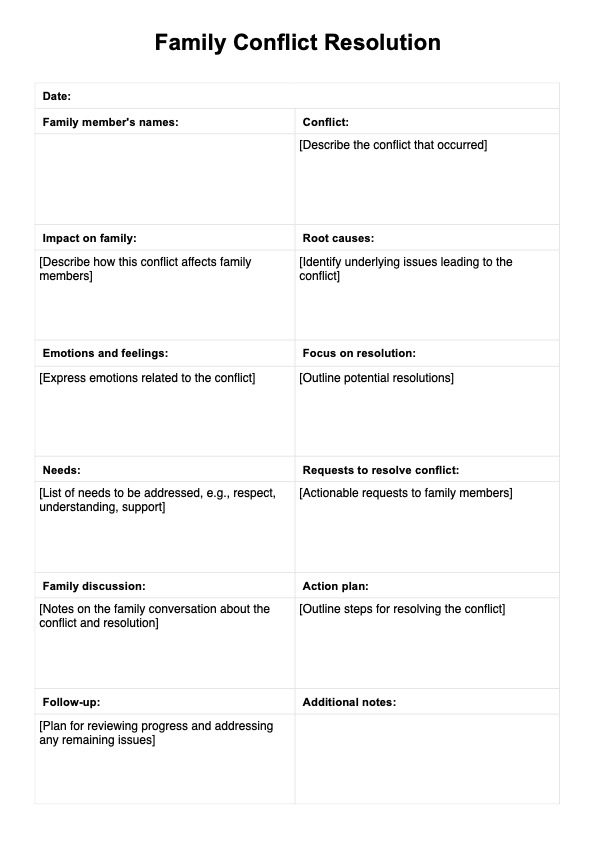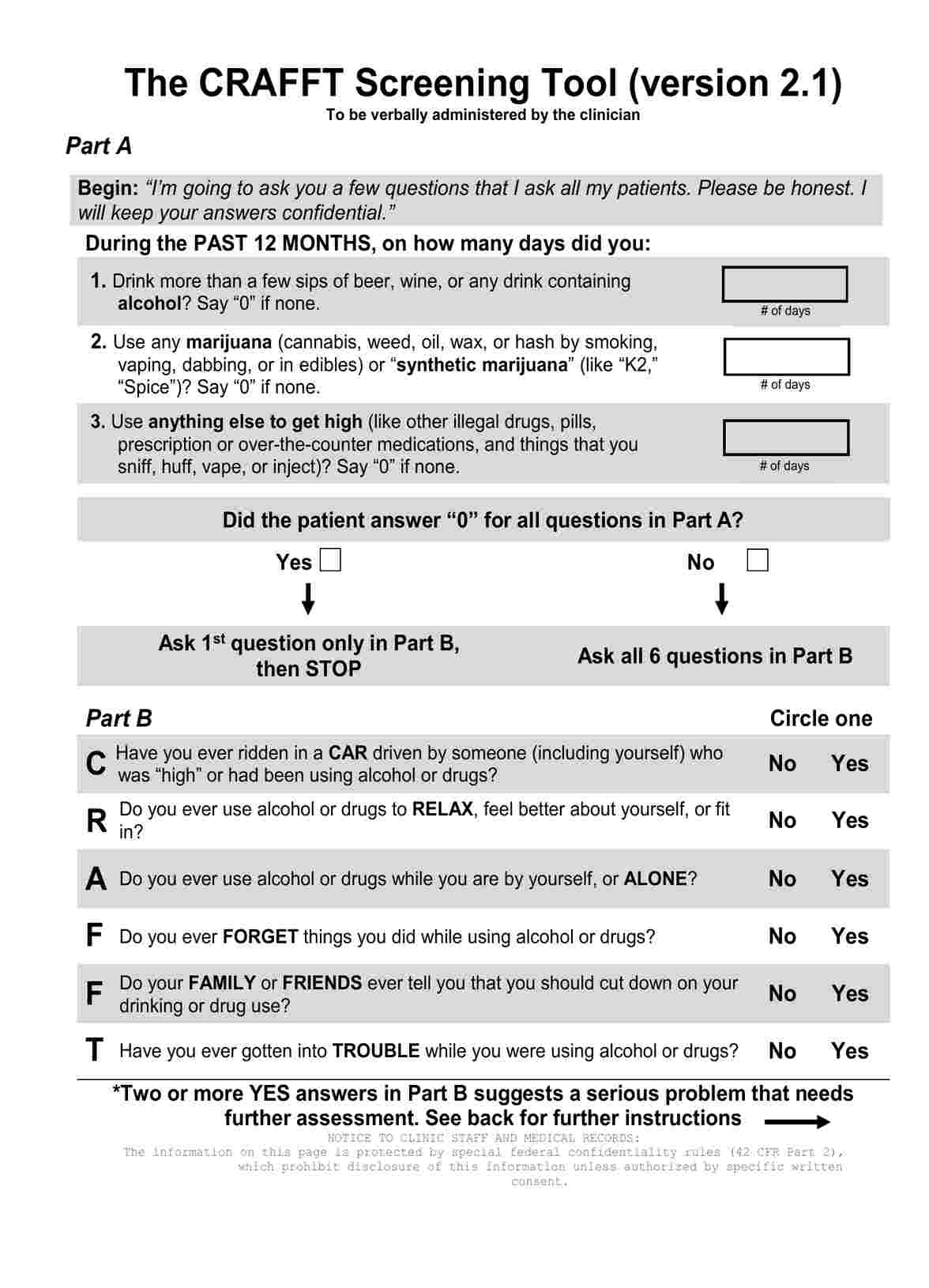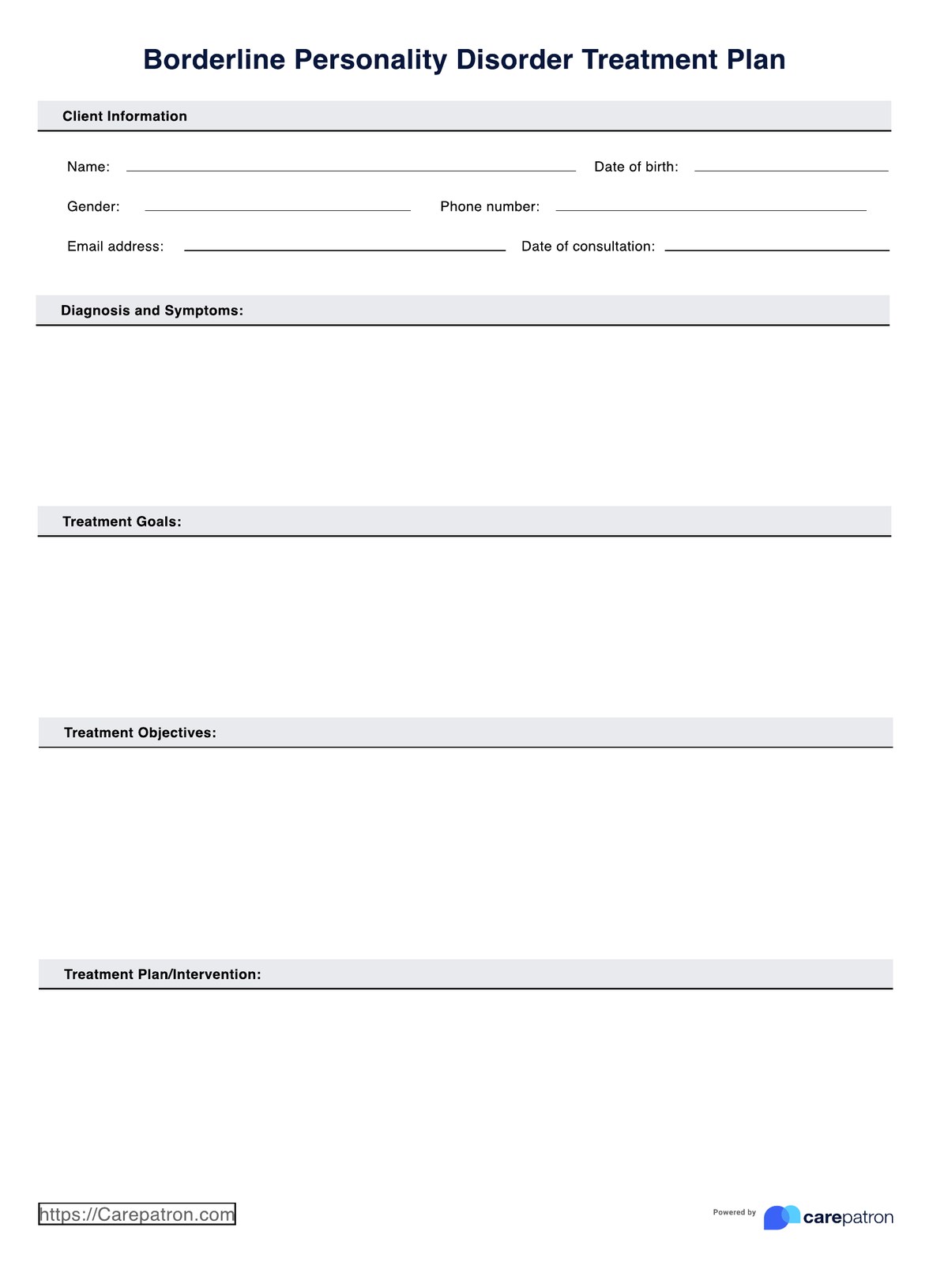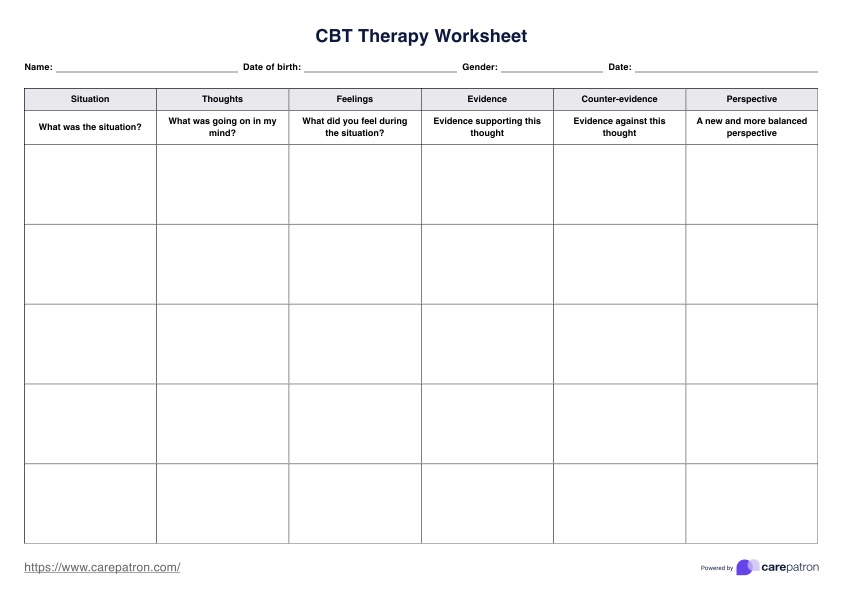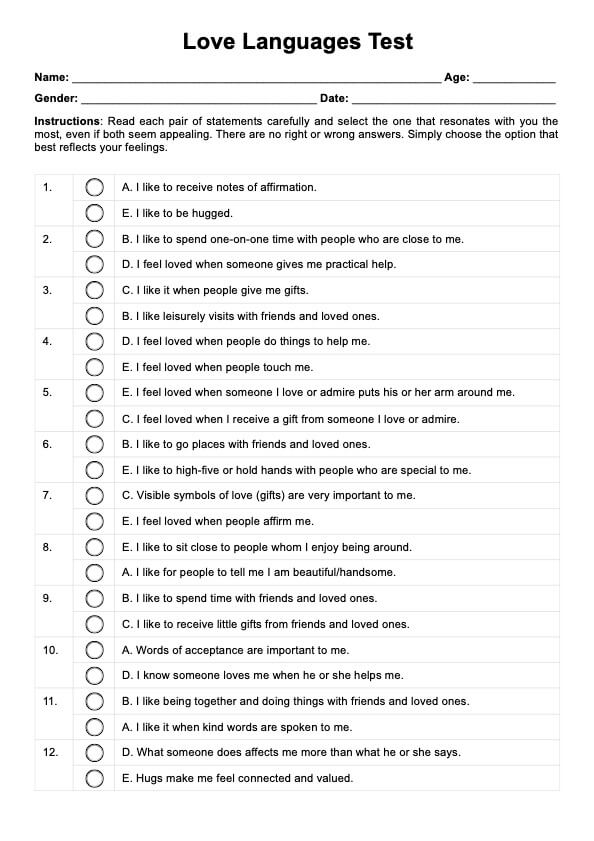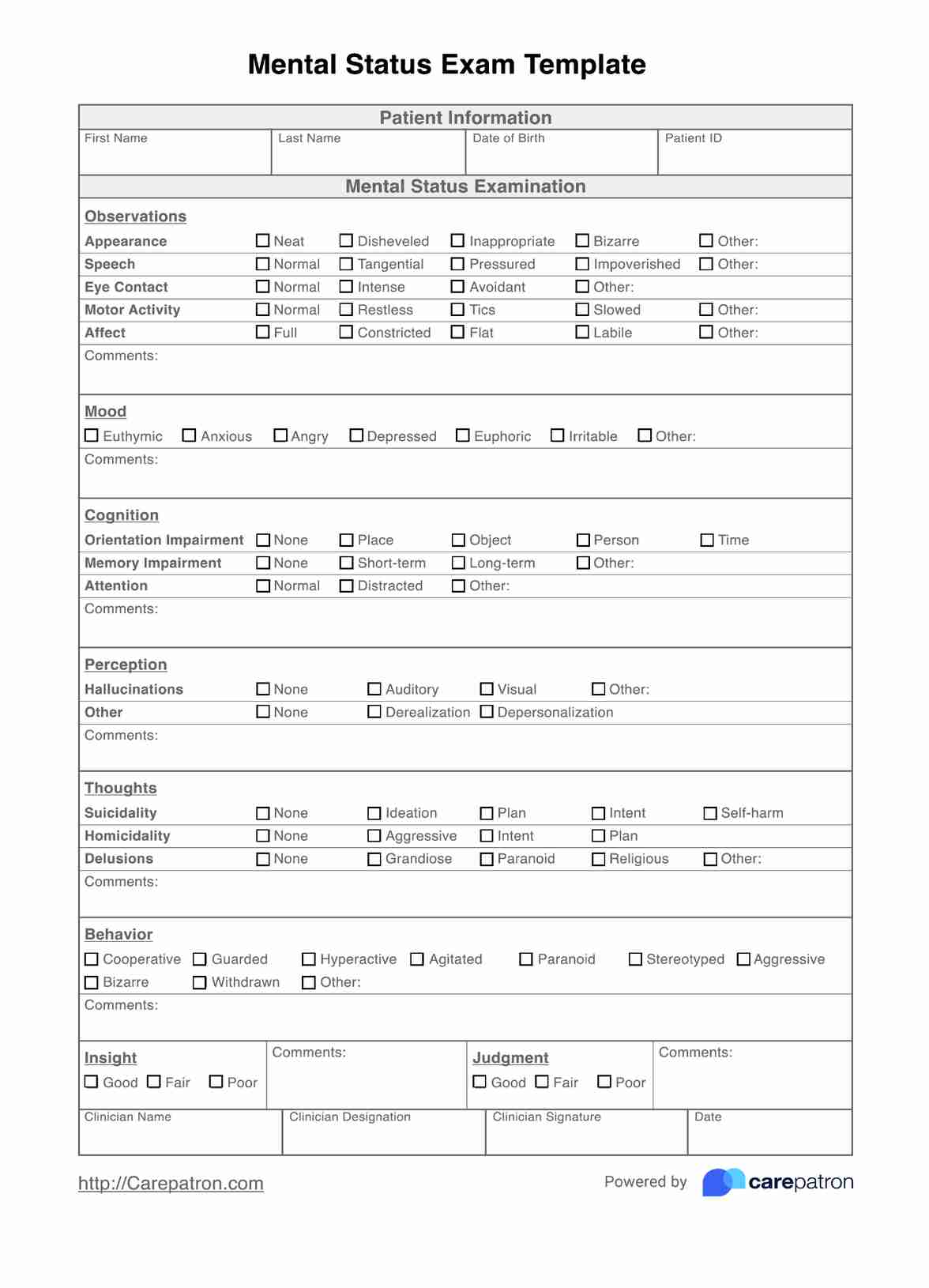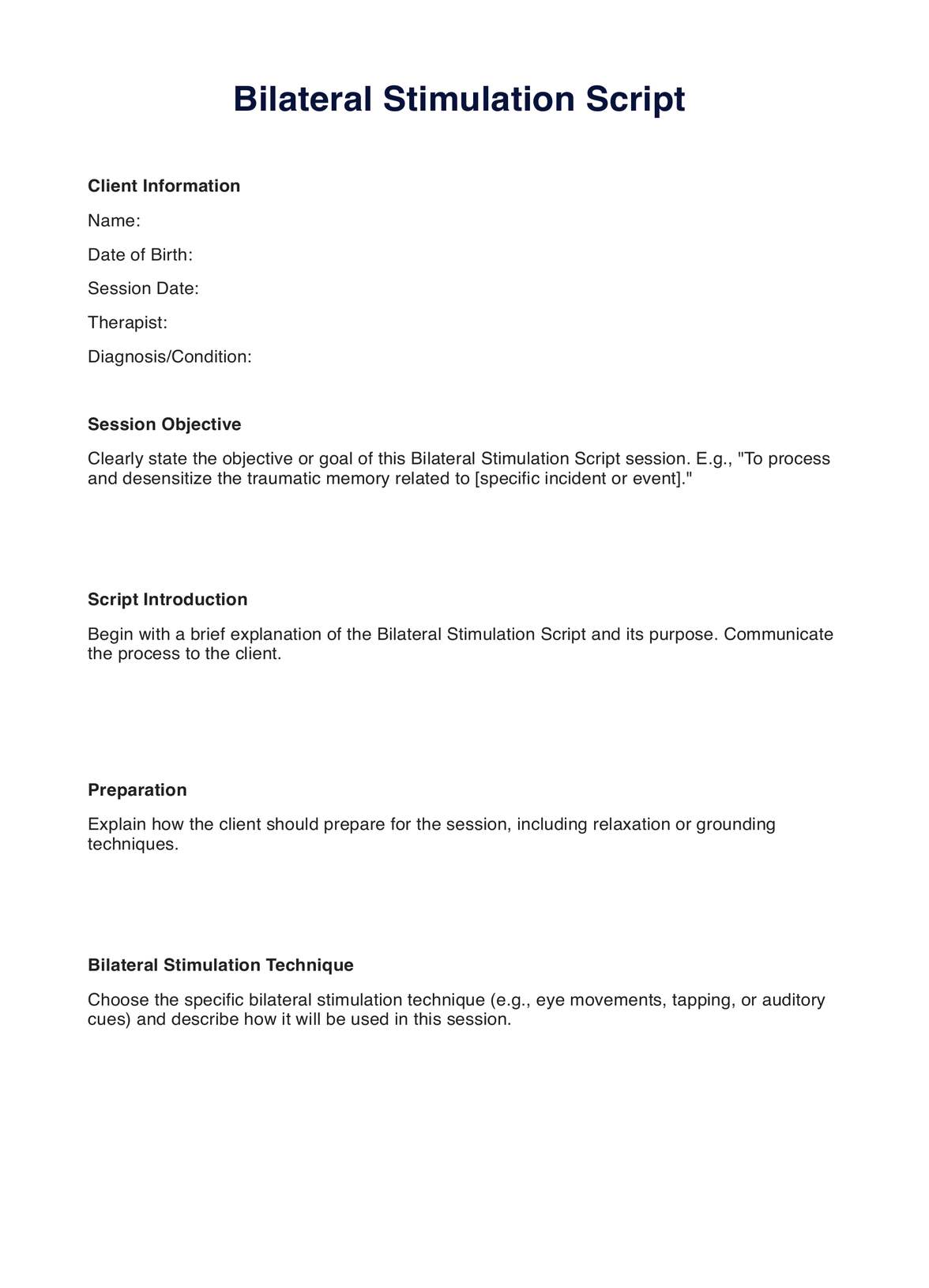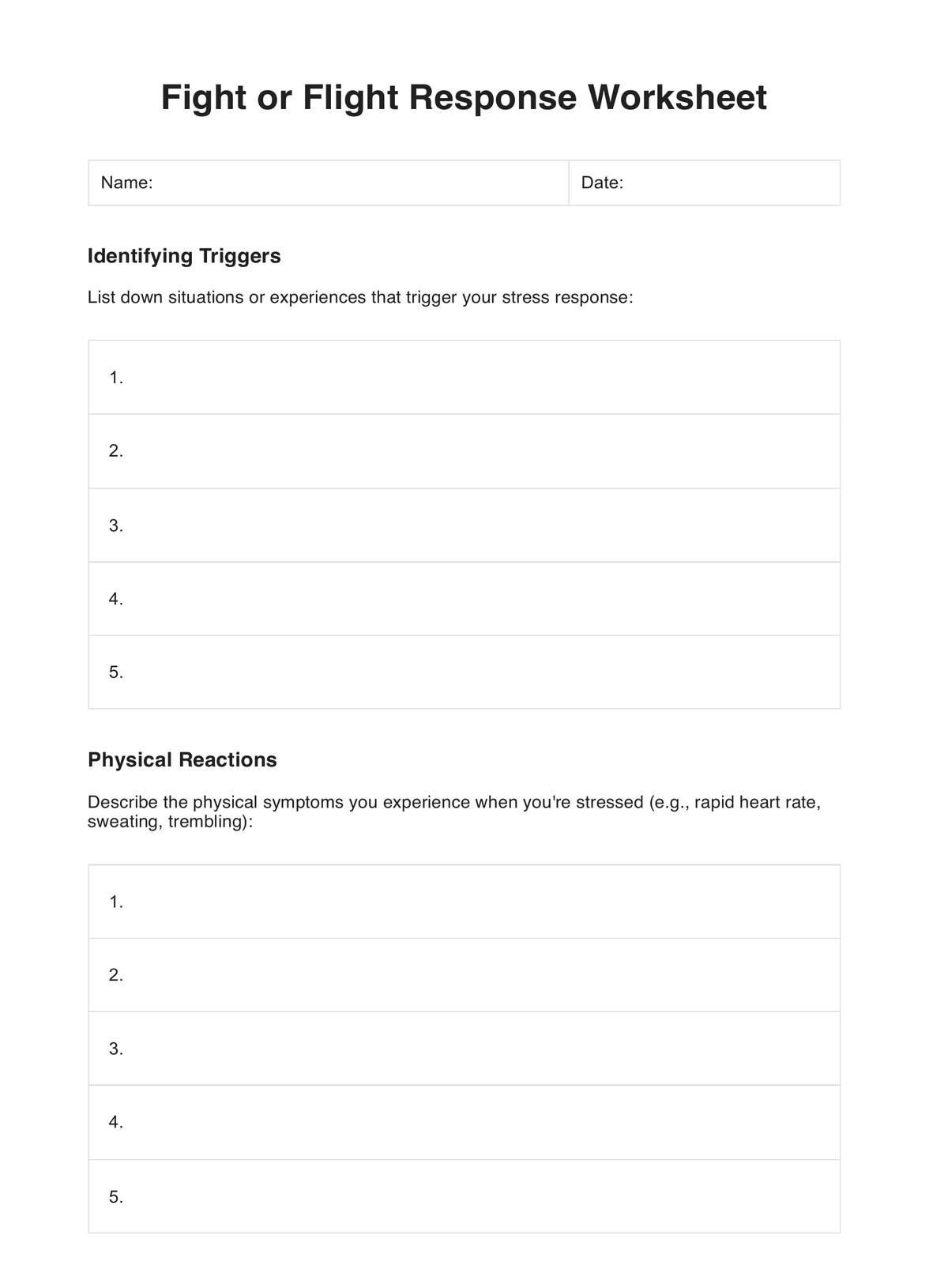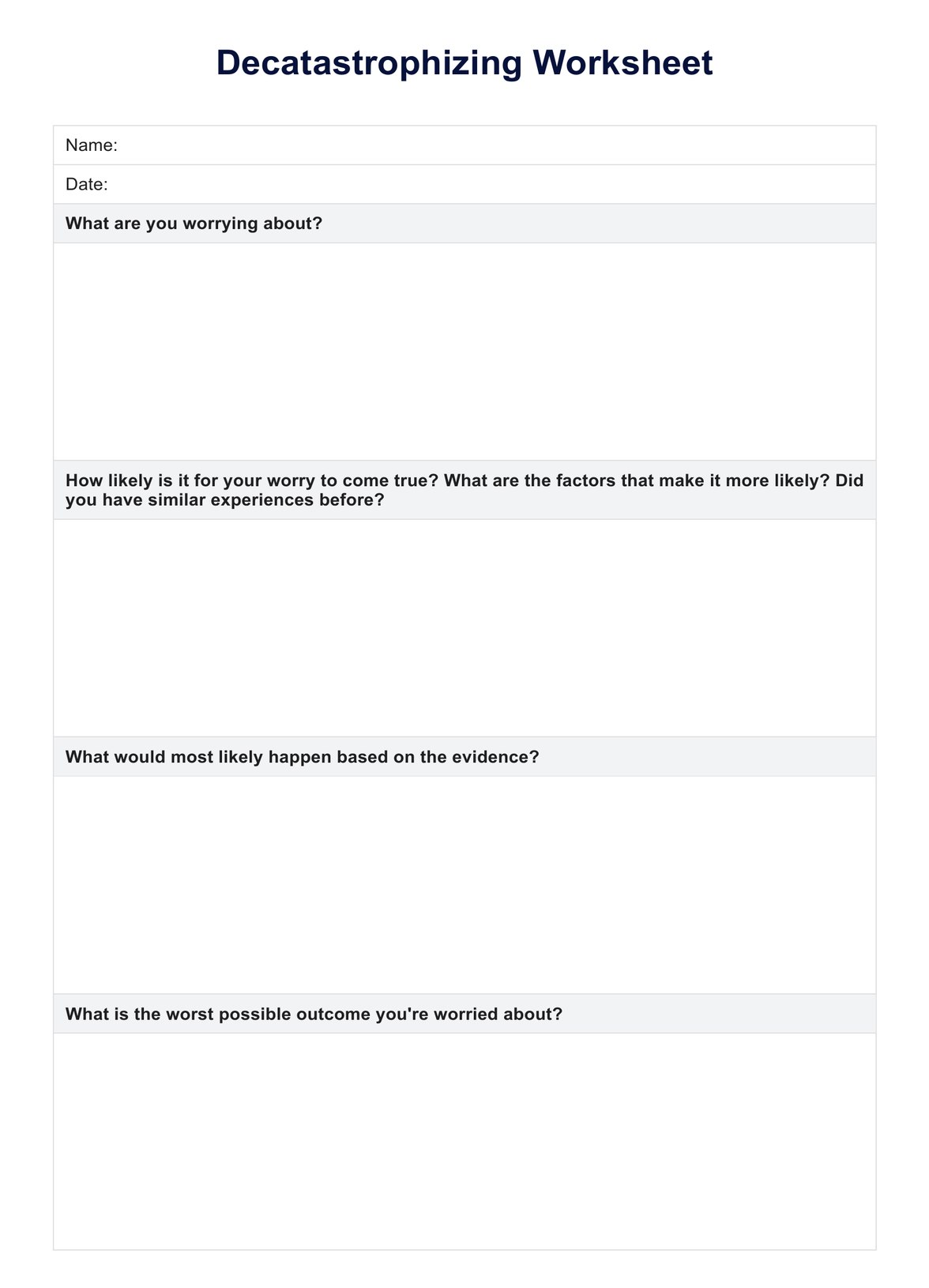Assisted Living Assessments
Explore the comprehensive Assisted Living Assessment tool on Carepatron, your go-to app for user-friendly, customizable, and secure assisted living care.


What Is an Assisted Living Assessment?
Welcome to a resource that could be a game-changer for anyone considering assisted living for themselves or a loved one. The is not just another piece of paper; it's a vital tool in the decision-making process that can significantly impact the quality of life.
So, what exactly is an Assisted Living Assessment? It's a comprehensive evaluation conducted by healthcare professionals to determine an individual's specific needs, preferences, and suitability for assisted living. This assessment is like a personalized roadmap, helping families and seniors navigate the complex journey to find the perfect living situation.
The process includes an in-depth analysis of a person's physical health, cognitive abilities, emotional well-being, social needs, and daily living skills. This information helps paint a vivid picture of the individual's needs and wants in an assisted living environment.
Why is it so crucial? Imagine trying to find a new home without knowing what you need in a neighborhood, the size of the house, or even the budget. Sounds overwhelming, right? The Assisted Living Assessment serves as that guiding compass, eliminating the guesswork and ensuring that the assisted living facility aligns with the individual's unique needs and preferences.
So, whether you're a senior looking for a new living adventure or a family member dedicated to finding the best care for a loved one, this assessment can be your best ally. Stick around, and we'll walk you through everything you need to know about Assisted Living Assessments, from the why's to the how's, and even provide a handy Free PDF Download.
Let's embark on this journey together! 🌟
Assisted Living Assessments Template
Assisted Living Assessments Example
How Does It Work?
Assisted Living Assessments are vital in evaluating a patient's needs and determining the best type of care for them. The process comprehensively examines a person's physical, mental, emotional, and daily living capabilities. Here's how a healthcare professional should carry out this assessment:
Step 1: Initial Consultation and Review of Medical History
Meet with the patient and their family to understand their current living situation and medical history. Discuss chronic conditions, medications, allergies, past surgeries, and family medical history to understand the patient's health.
Step 2: Physical Health Assessment
Examine vital signs such as blood pressure, heart rate, respiratory rate, mobility, vision, and hearing. These assessments are fundamental in understanding the patient's basic physical health needs.
Step 3: Cognitive and Emotional Evaluation
Assess the patient's memory, attention span, orientation, problem-solving skills, mood, anxiety levels, and social interactions. This will provide insight into their mental and emotional well-being.
Step 4: Daily Living Skills Assessment
Evaluate the patient's ability to perform Activities of Daily Living (ADLs) and Instrumental ADLs such as cooking, shopping, and managing medications. This will help in understanding their level of independence.
Step 5: Special Needs & Preferences
Discuss dietary preferences, cultural needs, religious practices, and personal preferences such as pets or hobbies. Tailoring the care to the patient's needs and wants ensures comfort and happiness.
Step 6: Tests & Screenings
Order necessary tests like blood tests, x-rays, or mental health screenings. These help in identifying underlying issues that might require specialized care.
Step 7: Overall Interpretation & Recommendations
Summarize the findings and recommend assisted living facilities that suit the patient's needs, including medical support, community activities, dietary requirements, etc.
Conducting an Assisted Living Assessment is a multifaceted process that requires careful consideration of the patient's overall well-being. By following these steps, healthcare professionals can ensure that they provide comprehensive care tailored to each patient's needs, like Drew Hopkins. Connecting the right person with the right assisted living environment meets their medical requirements and promotes a better quality of life.
When Would You Use This Form?
Assisted Living Assessments are essential tools that geriatricians, social workers, nurses, and other healthcare providers care for older people or individuals with disabilities. This form is not merely a document but a comprehensive guideline to evaluate a patient's suitability for assisted living. Here are some scenarios when this form can be used:
- Evaluating a Senior's Living Needs: When a senior citizen experiences difficulty with daily living activities, this assessment helps determine the necessary level of care.
- Chronic Illness Management: If a patient has chronic illnesses that require constant monitoring or assistance, this form can guide the appropriate living arrangement.
- Post-Hospitalization Transition: Following a hospital stay, this assessment can be crucial in planning the next stage of care, including the possibility of assisted living.
- Disability Assessment: For individuals with physical or cognitive disabilities, this form helps in understanding their unique needs and the support required.
- Legal and Family Planning: Sometimes, legal or family members need a professional evaluation of a loved one's ability to live independently. This assessment serves that purpose.
- Geriatric Care Planning: Healthcare providers specializing in geriatric care can use this form to craft a comprehensive care plan tailored to patients' needs.
The Assisted Living Assessment form is a multifunctional tool that aligns with various healthcare needs. Its comprehensive nature ensures that it can be used in diverse scenarios, providing a guideline for practitioners. By understanding when and how to apply this resource, healthcare professionals can make informed and compassionate decisions that resonate with each patient's needs and preferences.
Benefits of Using the Assisted Living Assessment Template
Comprehensive Evaluation
The template provides a holistic and systematic approach to evaluating individuals' unique needs, preferences, and abilities. Considering various aspects ensures the assessment is detailed and caters to each patient's situation.
Time-saving
Utilizing this structured template can save healthcare professionals valuable time. The laid-out sections guide practitioners through the process, helping them to complete the assessment quickly and efficiently.
Legal Compliance
Assisted Living Assessments must often comply with specific legal regulations and standards. This template aligns with common regulatory requirements, thus supporting legal compliance and protecting the healthcare provider and patient.
Enhances Patient-Centered Care
With its emphasis on individualized assessment, the template promotes patient-centered care. Focusing on the person's unique needs and wishes fosters a tailored approach that resonates with the patient's situation and values.
Facilitates Communication
The organized format of the template encourages clear and concise communication among healthcare team members. It is a standard tool that all professionals involved in the patient's care can understand and follow.
Available in a Downloadable PDF
For those who wish to have a hands-on experience, the template is available as a downloadable PDF from our website. Having it in this accessible format can be easily printed, filled out, and stored, making record-keeping more straightforward.
Research & Evidence
Assisted Living Assessments are critical components of senior care, guided by extensive research, historical developments, and evidence-based practices. Their history is intertwined with the broader evolution of geriatric care and the focus on individualized and holistic approaches to aging.
In the latter half of the 20th century, the shift from institutional care to assisted living marked a pivotal moment in elderly care. Researchers such as Calkins and Cassella (2007) have documented this transformation, emphasizing the importance of assessments to determine the appropriate level and type of assistance.
Several studies support the utilization of comprehensive assessment tools in assisted living. According to a study by Hawes et al. (1995), standardized assessments improve the quality of care, enhance the targeting of services, and result in better outcomes for residents.
Furthermore, legislation and guidelines have been enacted in various jurisdictions, requiring proper assessment and individualized care planning in assisted living facilities. These laws reflect the global emphasis on patient autonomy, informed consent, and person-centered care.
Lastly, organizations like the American Geriatrics Society have developed best practices and standards for assessments in assisted living. These guidelines are anchored in research and the collective wisdom of practitioners.
In conclusion, the Assisted Living Assessment tool is more than a mere form; it represents a commitment to evidence-based, ethical, and person-centered care, deeply rooted in research, history, and professional standards.
References
- Calkins, M., & Cassella, C. (2007). Exploring the cost and value of private versus shared bedrooms in nursing homes. The Gerontologist, 47(2), 169-183.
- Hawes, C., Morris, J. N., Phillips, C. D., Mor, V., Fries, B. E., & Nonemaker, S. (1995). Reliability estimates for the Minimum Data Set for nursing home resident assessment and care screening (MDS). The Gerontologist, 35(2), 172-178.
- American Geriatrics Society. (2011). Person-centered care: A definition and essential elements. [White Paper]. Retrieved from https://www.americangeriatrics.org/
Commonly asked questions
Absolutely! Carepatron allows you to tailor the template to your needs, ensuring it aligns perfectly with your practice and patient population.
Yes, Carepatron adheres to all relevant legal and regulatory standards. It's designed to help healthcare professionals maintain compliance.
Certainly! Carepatron facilitates seamless communication and collaboration, enabling you to share assessments and coordinate care with other team members.


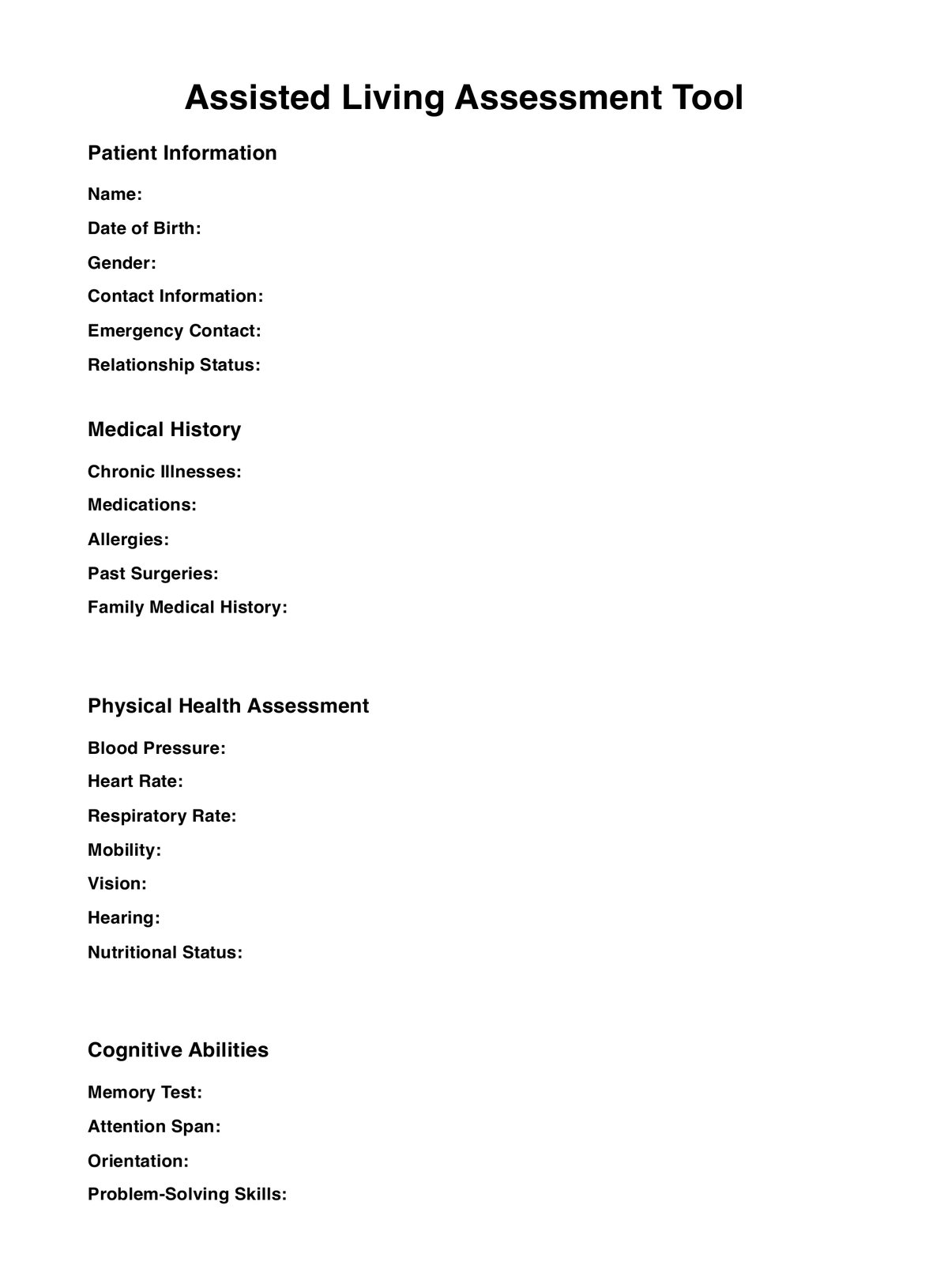
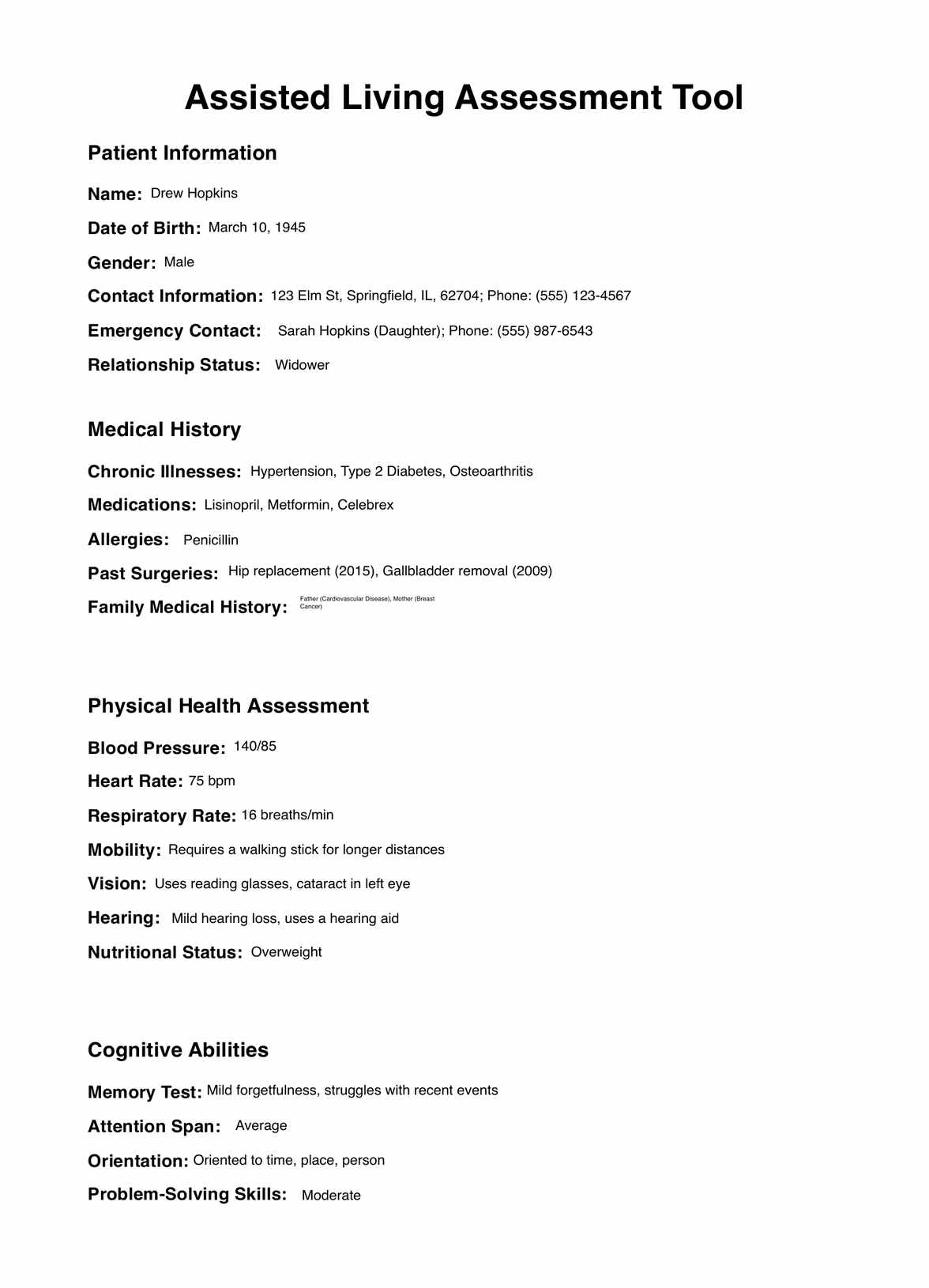

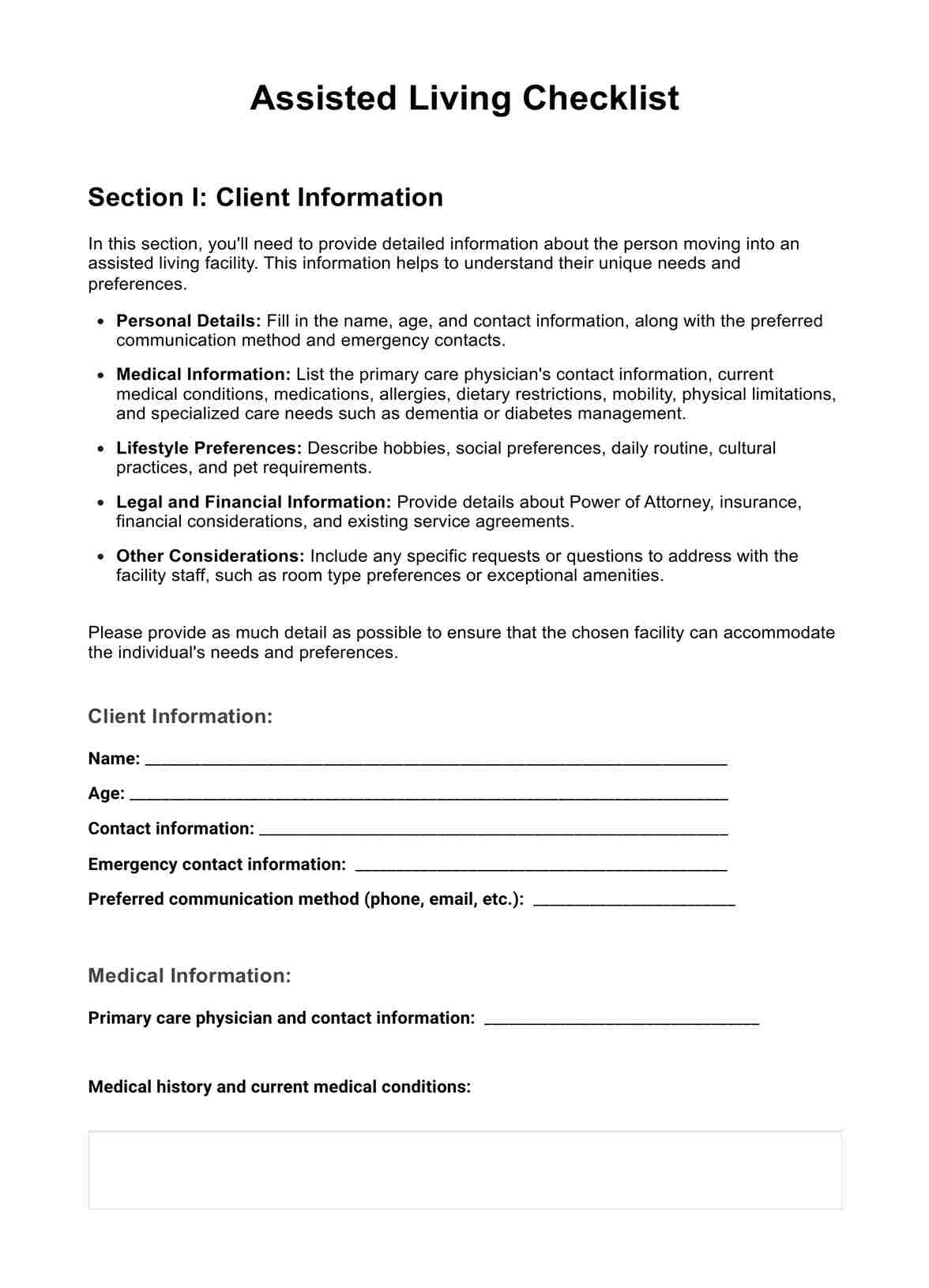













-template.jpg)

















































































